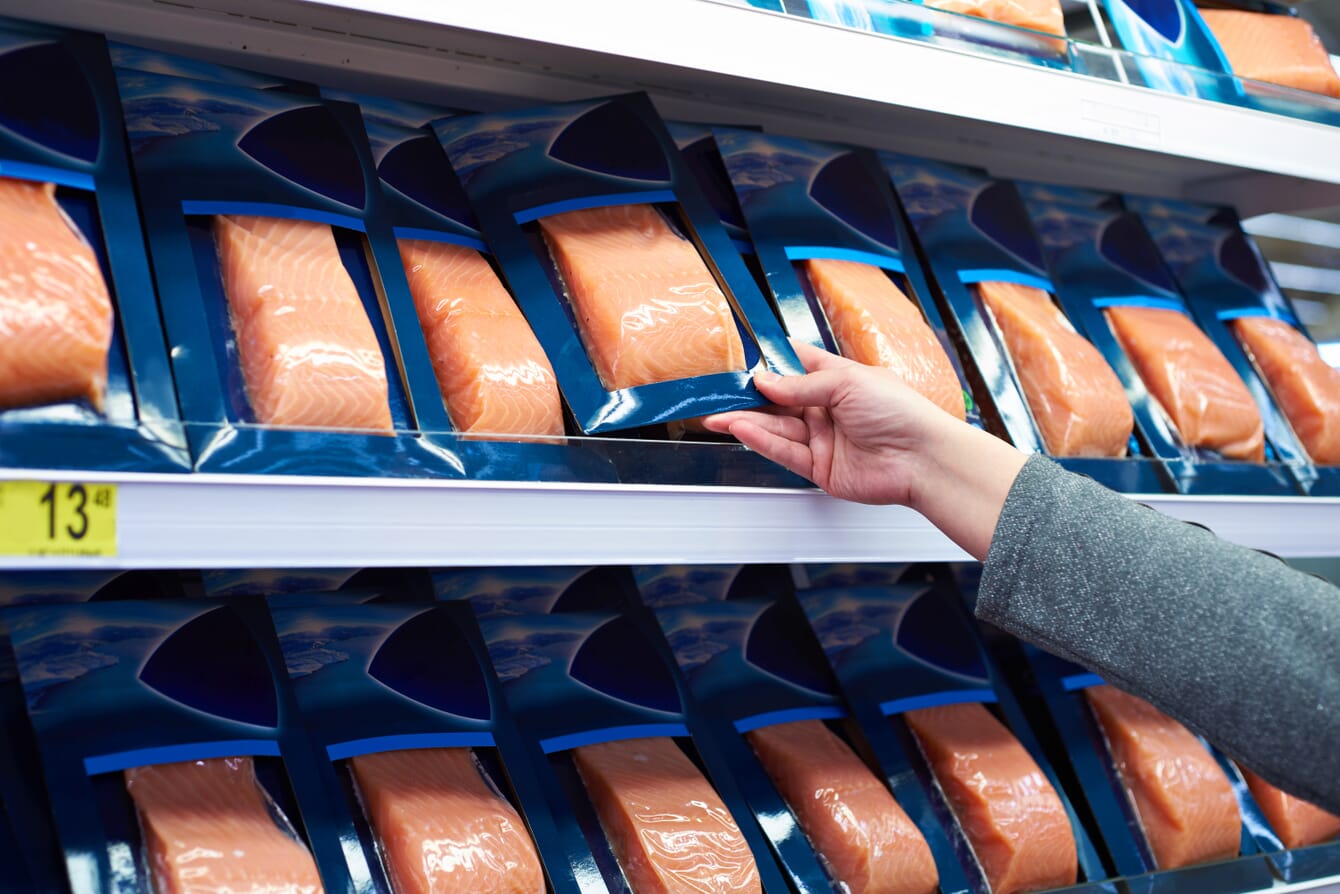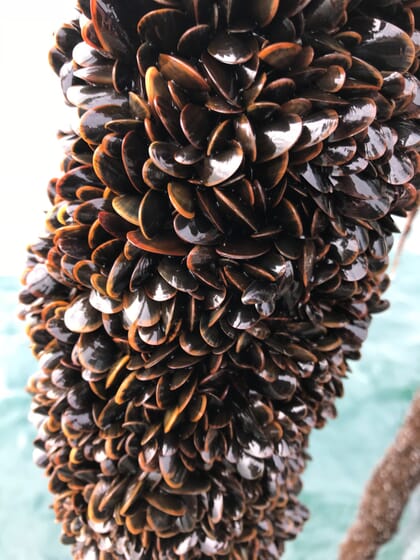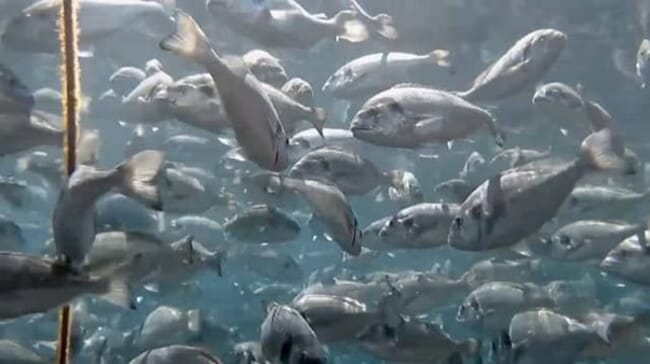
Recent data shows that Spanish shoppers are opting for more carnivorous fish instead of local ones
Spain is the second European country, just behind Portugal, that has the highest consumption of products from aquaculture. Each year, each Spaniard consumes an average of 42 kilos of these foods, making them one of the main sources of animal protein in households.
Researchers at the University of Alicante, Javier Atalah, a María Zambrano distinguished Researcher, and Pablo Sánchez, professor in the Department of Marine Sciences and Applied Biology, have recently carried out research on the eating habits of Spanish families where products from aquaculture are involved.
The study, titled “On the wrong track: Sustainable and low-emission blue food diets to mitigate climate change,” has been published in the journal Frontiers in Sustainable Food Systems and presented last November in Cádiz during the 28th National Aquaculture Conference.

The study found that bivalve consumption has been progressively decreasing © Offshore Shellfish
The study is based on the data of 12,500 families, collected between 1999 and 2021, and their conclusion is revealing. They have been able to observe a dip in consumption of traditional and nearby fish, such as sardine or anchovy, while there is a continuous rise of “carnivore” fish from farms, such as gilthead sea bream, sea bass and salmon (which is consumed mainly canned).
Additionally, there is an increase in canned tuna consumption that has a great environmental impact through transport and packaging. At the same time, there is a progressive decrease in the consumption of bivalves such as mussel, which also comes from farms and from which Spain is a leading producer.
These changes in consumption habits are detrimental to the environment, as Pablo Sánchez explains, since carnivorous fish from aquaculture, such as salmon, come from remote farms, which require a large amount of food produced from small pelagic fish. In contrast, bivalves are raised locally by feeding on the nutrients of their environment (phytopancton).

Carnivorous aquaculture species can come with a higher carbon footprint due to feed and transport-related climate emissions © AquaTech Lab, HCMR
Because of this, the researchers found that the carbon footprint (greenhouse gas emissions) is much greater when breeding carnivorous species in intensive farms that are located in distant places, both for their production and for the transport required.
Therefore, both researchers have concluded that it is necessary to generate consumer orientation policies to promote the purchase of aquaculture products with a low impact on climate change, such as bivalves. They are a healthy source of protein, rich in essential micronutrients, minerals and fatty acids—as Sánchez reported, while highlighting the low carbon footprint generated by this product.
“This is an excellent opportunity for citizens to make a responsible choice and thus reduce the environmental damage related to food production systems,” Sánchez commented. The researcher also highlighted that he would like to see this aspect taken into greater account in the products Spanish consumers purchase, just as it happens in some countries where food is labelled by reporting the carbon footprint generated by their production.
According to Sánchez, shoppers are on the wrong track because they have to think about what kind of fish they consume and at what cost. “Just because it comes from a farm doesn’t mean it’s more sustainable if you have to bring it from the other side of the planet,” he says. The researcher encourages citizens to seek conscious and responsible consumption at Christmas with the purchase, for example, of aquaculture products such as bivalves.




